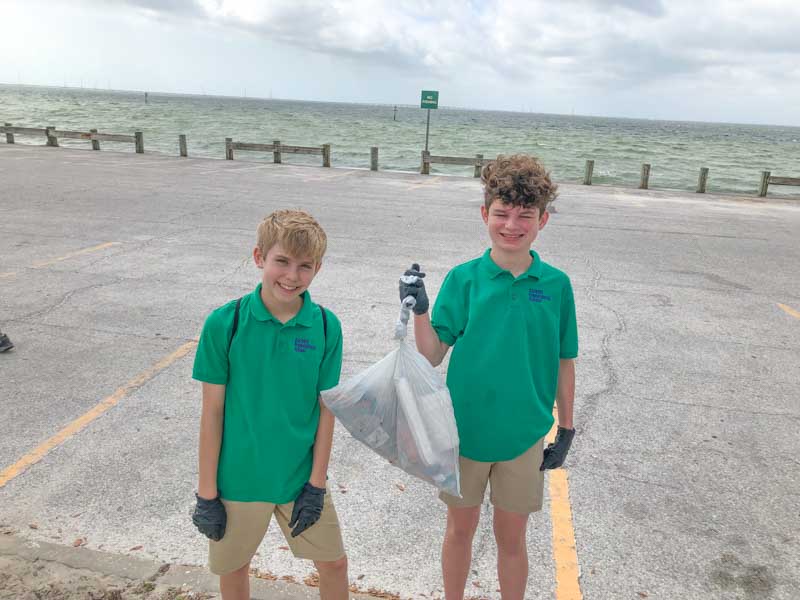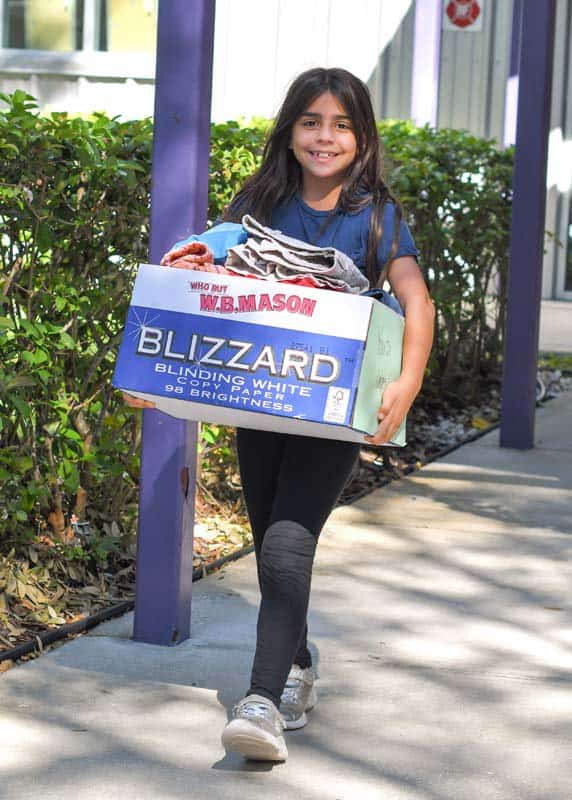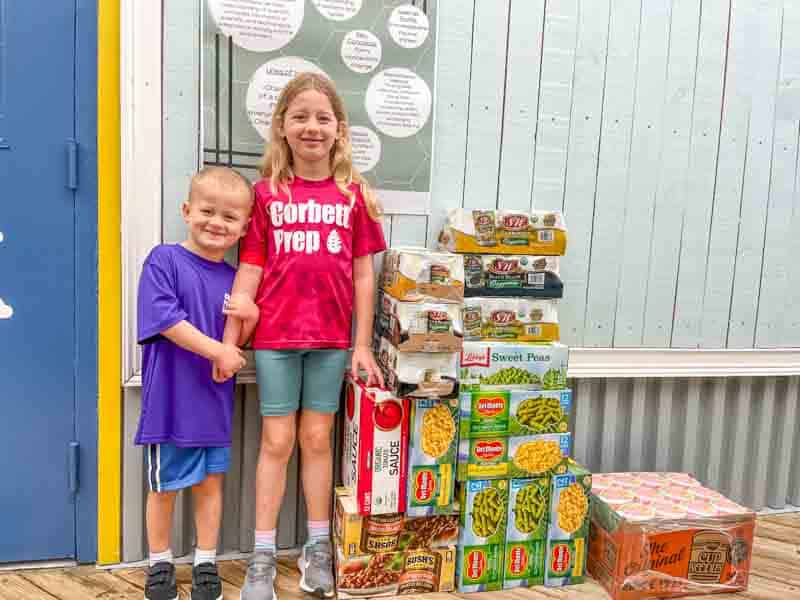Corbett Prep Shares 3 Ways Your Family Benefits When Giving Back
If you resolved to do more for your community in 2023, consider expanding your reach and making your kids part of your commitment. You’ll help others, to be sure, and you might discover your own family benefits as well.
Volunteering has a ripple effect. Children who participate in community service often stay involved as adults, setting a positive example for others. The service organization AmeriCorps found in 2010 that youth volunteers who had good experiences tended to return and tell their friends, increasing the likelihood they would also volunteer. They also stick with service when they grow up. Two-thirds of adult volunteers reported that they had volunteered when they were young, according to an earlier study.
Students at Corbett Prep begin the practice of volunteering early. Corbett Prep considers itself a private school with a public purpose, offering educational and enrichment opportunities for the greater community as well as coordinating occasions for students and families to raise money, collect goods or donate time or talents to area nonprofits.
Under the umbrella of “Corbett Cares,” the school is expanding its volunteer efforts this year to involve more of its PreK-8th grade population. In addition to benefiting a higher number of people in the community, the broader focus on service will make a difference among those who volunteer. What could families gain from volunteer time? We found three major benefits children and parents receive when they give back to others.
Volunteering teaches empathy and compassion.
When kids accompany parents to shop for a food drive or pick a gift for a needy child, they put themselves in someone else’s shoes to think about what they might want or enjoy. Corbett Prep’s social-emotional learning program, the Four Pillars of Wellbeing, establishes “community” as one of its core values and uses it as a springboard to talk about gratitude, support, friendship and collaboration. It encourages students to shift their mindsets from “what’s in it for me?” to “what do I have to offer?”
This change in perspective works for volunteers of all ages. Children might assume they are too young to contribute meaningfully, while adults may worry about fitting one more task into their busy schedules. When we focus instead on the special skills, interests and talents that help us make a difference, we are more creative, confident and productive. That allows us to concentrate on the bigger picture—who needs help and how we can provide it.
Volunteering provides educational opportunities.
Community service becomes meaningful when helpers understand the purpose behind their involvement. You could have your kids carry canned goods to a food drive donation box, or you could first have a discussion about food insecurity, what it is, why it occurs and how to help. Parents can take kids to shop for items to contribute and encourage them to think about what would help someone and why. A short explanation might be enough for young children, while preteens are ready to hear more detailed information. Corbett Prep brought leaders of several nonprofit groups to speak to students about service in action during the eighth grade’s Leadership Week. They shared what they do along with statistics and stories about local needs that inspire their organization’s mission, which helped the teens broaden their perspectives.

Volunteering shows kids what they can do.
The conversation about community service begins in prekindergarten at Corbett Prep when teachers ask the children how they could be of service to others. The students quickly come up with ideas: pick up toys, be kind to siblings, help friends who feel sad, take care of pets. They may be little, but they learn that they can make a difference in someone’s life.
As students grow up, they take on more responsibilities. At Corbett Prep, fifth and eighth graders conduct in-depth research and service learning projects linked to the International Baccalaureate Programme. Eighth graders this year will draw from what they learned during their Leadership Week for their Community Project, identifying a need they can address with action: service, advocacy or research. In fifth grade, the students participate in the IB Exhibition and explore how to make positive differences in their lives and the lives of others.
All efforts, big and small, contribute to making the world a better place. It can be as simple as taking a garbage bag to collect litter on a beach day, visiting animals at a shelter or writing cards to someone who doesn’t feel well. Preteens and teens can take a more active role and organize fundraisers and informational campaigns to benefit causes close to them. Remember too, that kids are creative and eager to have their voices heard. Ask them their ideas for how they want to help.
Volunteering together strengthens family bonds, introduces new perspectives and increases happiness. Sharing the experience of giving as a family helps the lessons behind volunteering stick with children for years, and they learn that all ages can play important, active roles in their community and contribute to the greater good.

*Presented by Corbett Preparatory School of IDS | Originally published in January 2023 of Tampa Bay Parenting Magazine.


